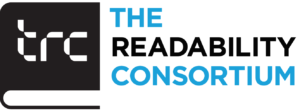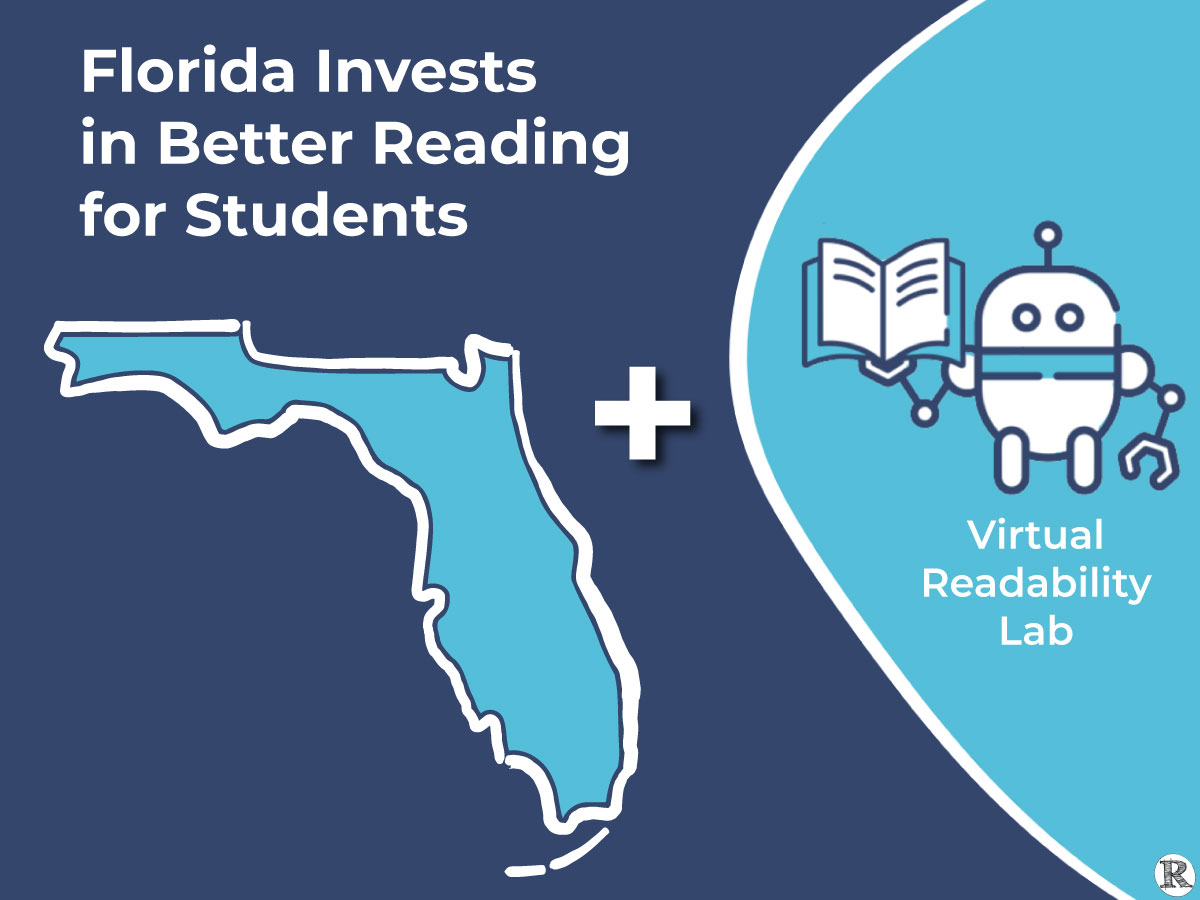UCF Expands K-12 Readability Research
Supported by an appropriation from the State of Florida, the Virtual Readability Lab at the University of Central Florida is expanding research to improve reading outcomes for young learners.
The $1 million state appropriation will allow the UCF team to expand upon their earlier pilot work to explore how personalized text formats impact a student’s reading performance, measured by changes to reading speed and comprehension.
Dr. Stephanie Day leads the UCF education-focused readability research. She and the team are pioneering research to improve readability for children in Florida’s school districts. They are completing a pilot study on the impact of character spacing on reading in middle and high school students and will expand the work to examine the influence of variable font axes on reading performance. This spring, the team will look at format readability in elementary-aged students using Readability Matters’ voice AI assessment tool.
“This research is a pivotal step towards understanding and enhancing children’s reading experiences in digital environments,” remarked Dr. Day. “Format readability is a relatively new area of research (especially in child populations) and is often overlooked as a feature in the design of educational technology. We aim to determine the specific aspects of text format that have the greatest impact on reading performance and to develop tools and resources to help educators implement individualized format readability in their classrooms.”
“We have seen the impact of better readability for adult readers across a number of studies and use cases. The opportunity provided by the State of Florida will help us expand and accelerate the research to provide critical benefits for K-12 students,” said Dr. Ben D. Sawyer, Director of the lab. “This research will inform educators and industry partners in their efforts to design and implement more effective educational technology.”
The funded project will focus on strengthening and refining the earlier work of The Readability Consortium at UCF in the understanding of how individualized format readability optimizes reading speed and comprehension in K-12 populations and building tools to bring this technology into classrooms.
Included in the plans are:
- Assessing the impact of spacing and other aspects of format, such as font weight and width, on reading performance.
- Refining their format readability assessment to provide more accurate formatting recommendations for students.
- Providing professional development for teachers on implementing format readability tools and resources in classrooms.
Students in Florida and beyond will benefit from novel, low-cost classroom tools to support better reading.
 About Stephanie Day, PhD: Stephanie is a research scientist in the Virtual Readability Lab at the University of Central Florida. She received her Ph.D. in Developmental Psychology at Florida State University. Her research centers on examining links between children’s learning difficulties, individual differences, the classroom environment, and achievement. Stephanie has over 16 years of experience managing large-scale research studies focused on building technology to improve literacy outcomes for students in elementary school and is leading the TRC readability education research in K-12 populations.
About Stephanie Day, PhD: Stephanie is a research scientist in the Virtual Readability Lab at the University of Central Florida. She received her Ph.D. in Developmental Psychology at Florida State University. Her research centers on examining links between children’s learning difficulties, individual differences, the classroom environment, and achievement. Stephanie has over 16 years of experience managing large-scale research studies focused on building technology to improve literacy outcomes for students in elementary school and is leading the TRC readability education research in K-12 populations.
 About Ben D. Sawyer, PhD: Ben is Director of The Readability Consortium and The Virtual Readability Laboratory, where he leads teams rethinking how information flows from human to machine, and back. He is an Associate Professor at UCF in the Department of Industrial Engineering and Management Systems within the College of Computer Engineering and Computer Science, and The Institute for Simulation and Training. His previous positions include MIT’s Center for Transportation and Logistics, and Air Force Research Laboratory 711th Human Performance Wing.
About Ben D. Sawyer, PhD: Ben is Director of The Readability Consortium and The Virtual Readability Laboratory, where he leads teams rethinking how information flows from human to machine, and back. He is an Associate Professor at UCF in the Department of Industrial Engineering and Management Systems within the College of Computer Engineering and Computer Science, and The Institute for Simulation and Training. His previous positions include MIT’s Center for Transportation and Logistics, and Air Force Research Laboratory 711th Human Performance Wing.
 About the Virtual Readability Lab: The Virtual Readability Lab, developed by the University of Central Florida for research purposes, allows adults to participate in 5-minute reading tests. These tests determine the font or character spacing that help adults read faster, be more efficient and enjoy reading more.
About the Virtual Readability Lab: The Virtual Readability Lab, developed by the University of Central Florida for research purposes, allows adults to participate in 5-minute reading tests. These tests determine the font or character spacing that help adults read faster, be more efficient and enjoy reading more.
 About The Readability Consortium: The Readability Consortium’s core mission is to bring digital readability to all. The Readability Consortium believes reading is a fundamental right. A more readable document improves the ability of diverse readers to access information. TRC builds a growing scientific understanding of readability through round-table investigation. With their community, they explore how digital reading devices can diagnose reader needs, then deliver format and content to enhance, rather than impede, individual reader performance.
About The Readability Consortium: The Readability Consortium’s core mission is to bring digital readability to all. The Readability Consortium believes reading is a fundamental right. A more readable document improves the ability of diverse readers to access information. TRC builds a growing scientific understanding of readability through round-table investigation. With their community, they explore how digital reading devices can diagnose reader needs, then deliver format and content to enhance, rather than impede, individual reader performance.




